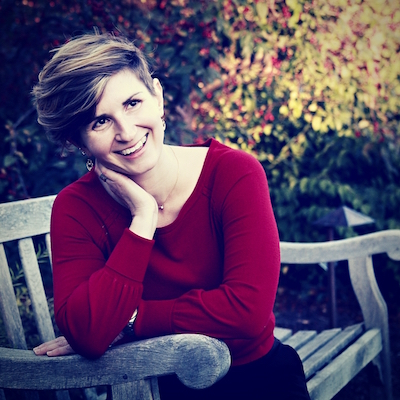
Sarah K. Stephens
Contributor
I was listening to Here’s The Thing, Alec Baldwin’s podcast where he interviews artists, politicians, and the like in his own unmistakable style. This week’s episode featured director Cary Fukunaga, known for the most recent Jane Eyre, Beasts of No Nation, and a season of True Detective. I didn’t know much about Fukunaga heading into the interview, and found his observations to be vibrantly open and humble.
But then, something happened. . .
Baldwin posited a question about sex scenes on True Detective, and Fukunaga responded by emphasizing Matthew McConaughey’s need for planning out the details of the scene ahead of time for the sake of comfort and predictability for all involved, and then moved on (in response to Baldwin’s question about Michelle Monaghan’s willingness to do a particularly explicit sex scene) to discuss his discomfort in asking any of the ‘girls’ to do these scenes at first and their ultimate willingness to engage in these scenes due to their validity in relationship to their character’s story arc.
Yes, dear reader, it was that one word that riled me. Girls.
I just wiki-ed Monaghan. She is 40 years old. I mean, come on. . .

Photograph via Unsplash
Now, this is not an attack on Fukunaga. Aside from that one semantic issue, the entirety of his interview was respectful of all the people he worked with. Which, I feel, brings this issue into even starker relief.
If a well-informed and characteristically thoughtful individual, such as Fukunaga came across in the interview, would so flippantly refer to grown women he worked with professionally as ‘girls’, then doesn’t that point to how insidious this infantilizing trend is for our cultural lexicon?
Imagine if he had referred to the ‘boys’ on set (referring to McConaughey and Woody Harrelson) and their willingness to go full frontal for character development. Can you even play that imaginary tape back in your head? It’s hard, because the idea of calling a grown man a boy is so counter to what is considered polite or appropriate in our American culture.
And yet. . .
We have Gone Girl. And Girl on the Train. And Girl with the Dragon Tattoo. And Lena Dunham’s Girls.
All of these deal with women either at the beginning or well into their womanhood. Women who are agentic and capable (would you call Amy from Gone Girl a ‘girl’ to her face? Me neither.) Why are they referring to the main characters as girls, then?
I can only speculate.
One obvious thought is to try and replace the word ‘girl’ in each title with ‘woman’ or ‘women’. How does that catch your attention? Yeah, me too. Just not as grabby, right? But that begs the question of ‘Why’?
Why is ‘Girl’ more interesting than ‘Woman’?
Girls still have a lot of learning to do, women know their way around the world. Girls are reliant on others, women handle their lives. Girls are pliable and flexible and young. Women are fully-realized and self-aware.
Or to put it bluntly: Girls are powerless. Women are powerful.
So is it true that, even in a literary world, we must market powerful femininity under a guise of helpless ingenues?
Photograph via Unsplash

And for those who say that one word here, one word there won’t make a difference, I have to differ. Cultivation theory argues that we form our reality based on the media that surrounds us, and if that’s the case, our reality is one where males are empowered and females are reduced.
And that’s a reality I want no part in, for myself, my daughters, my son, and you.
More About Sarah K. Stephens: Sarah K. Stephens earned her Doctorate in Developmental Psychology and teaches a variety of human development courses as a lecturer at Penn State University. Although Fall and Spring find her in the classroom, she remains a writer year-round. Her short stories have appeared in Five on the Fifth, The Voices Project, The Indianola Review, and the Manawaker Studio’s Flash Fiction Podcast. Her debut novel, A Flash of Red, will be released in Winter 2016 by Pandamoon Publishing. Follow her on Twitter or Facebook and read more of her writing on her blog.






